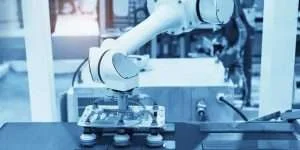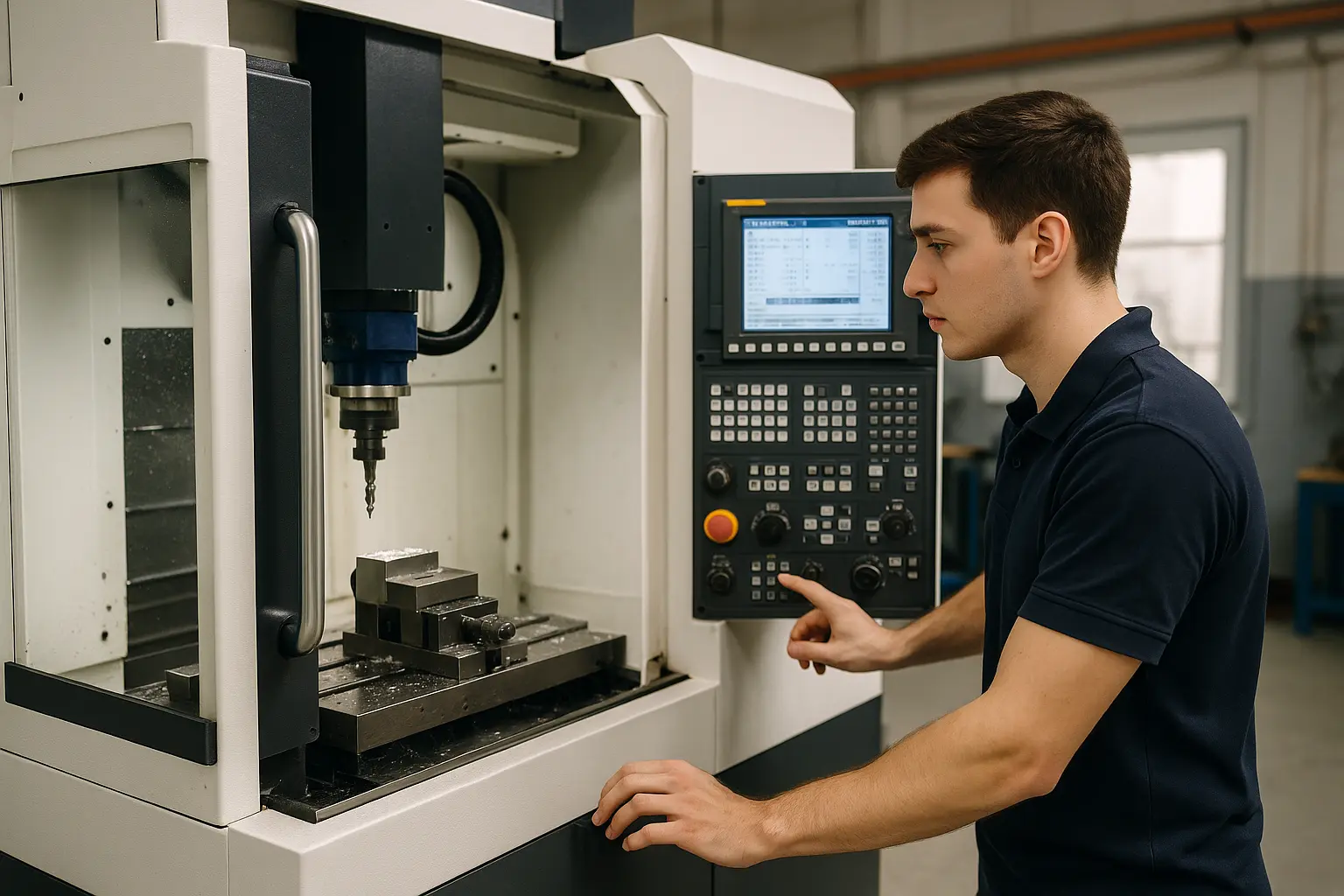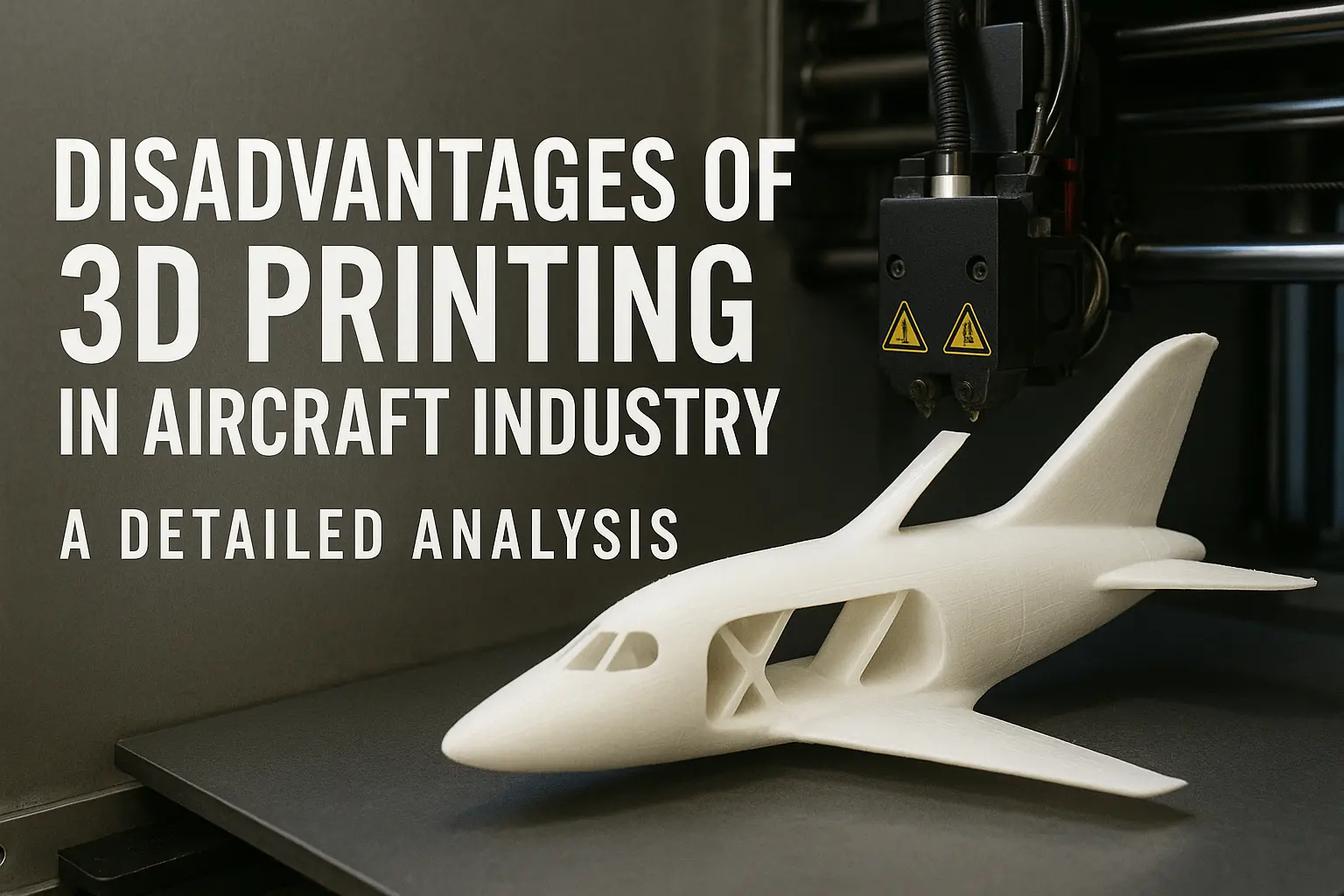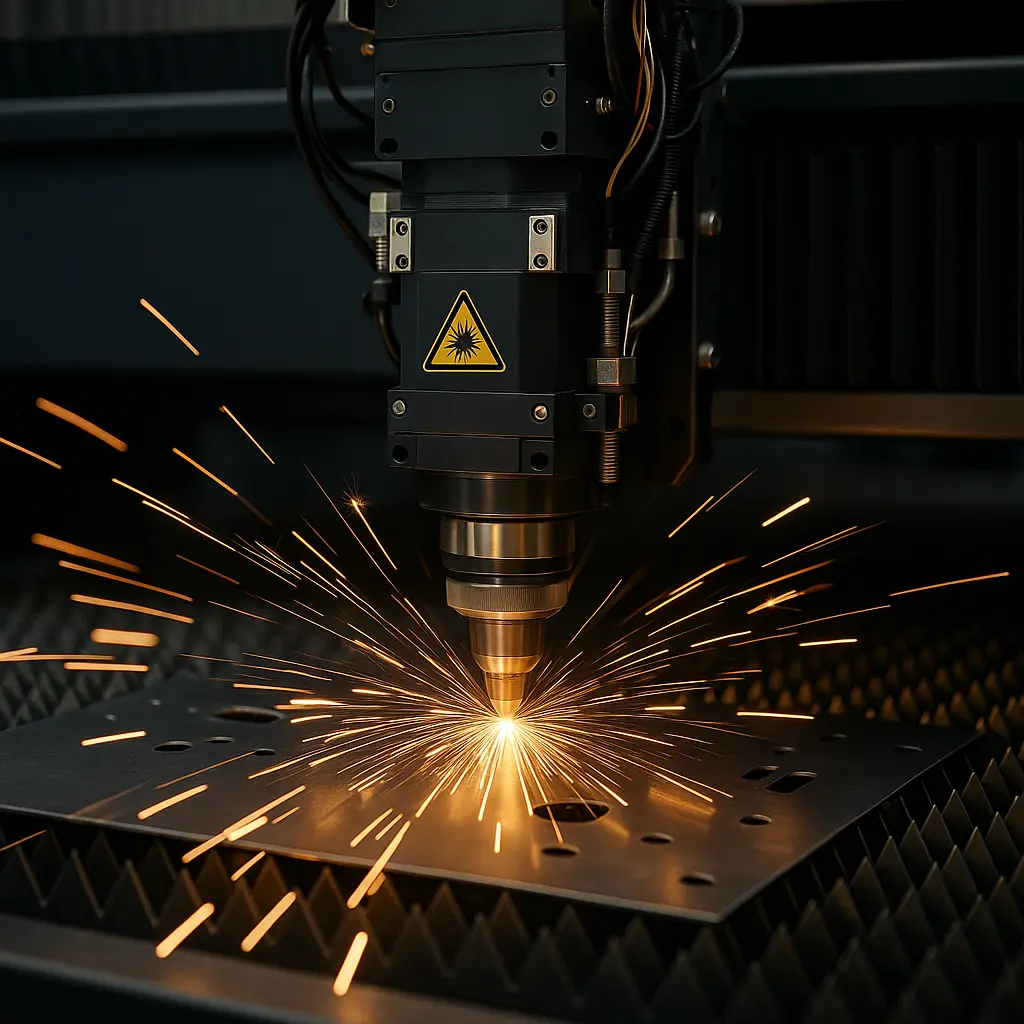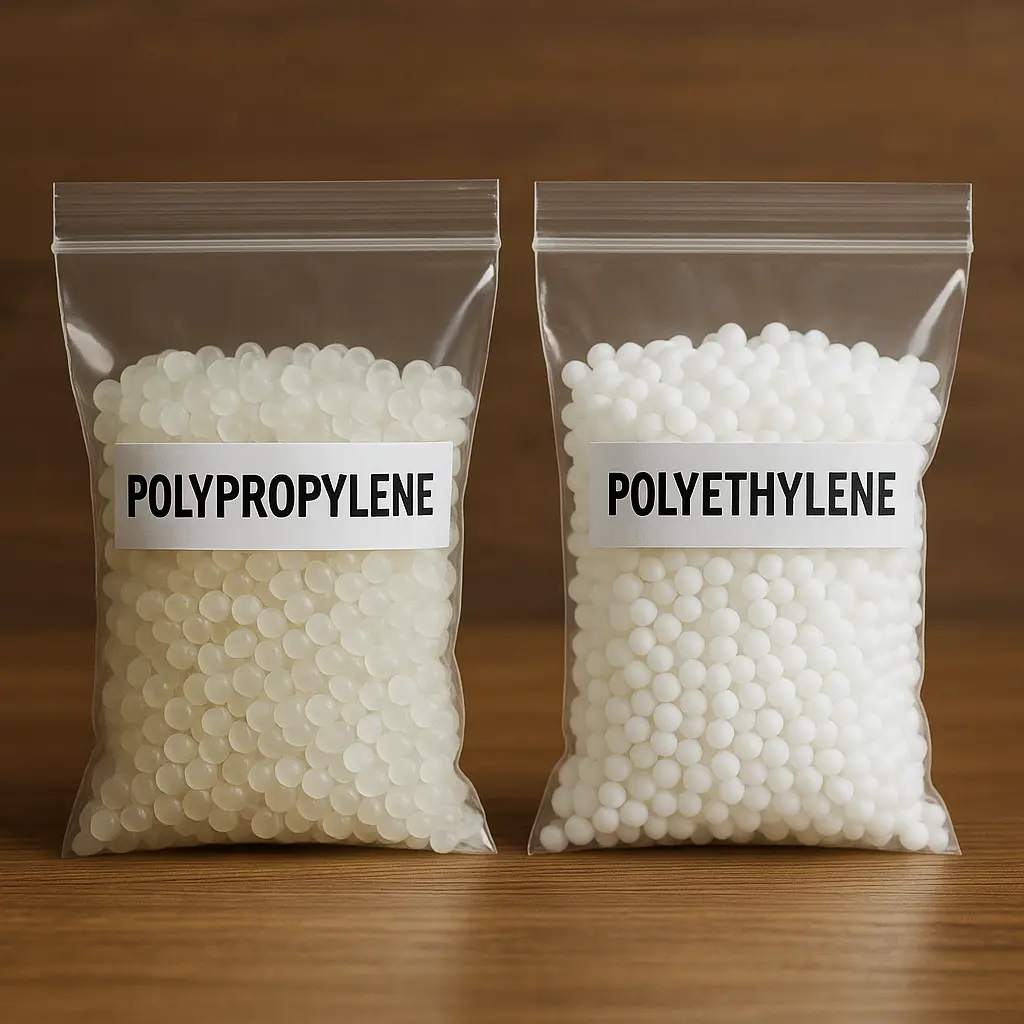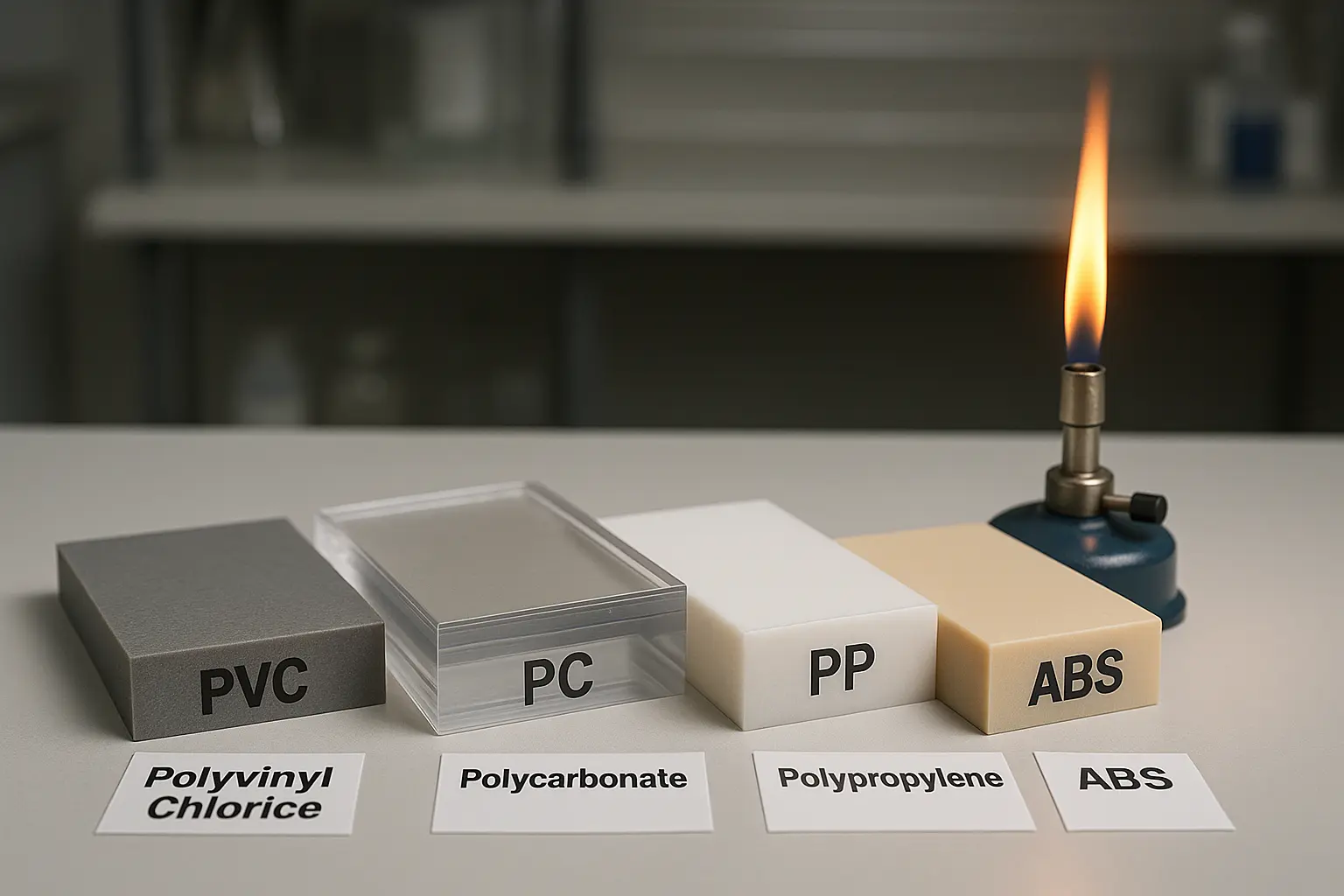CNC machining is important to handle the increasing demand for high-quality precision machined parts and prototyping in the medical industry. These CNC machined medical equipment and instruments must be on-demand manufacturing and meet the industry’s standards. Therefore, product teams and manufacturers rely on CNC machining to meet quality standards for medical devices due to its versatility and compatibility with various materials.
This article discusses the benefits and applications of CNC machining in the medical industry. You’ll also learn practical tips for effective medical parts designing and how to find a reliable manufacturing partner.

Benefits of CNC Machining in the Medical Industry Parts Manufacturing
The medical sector depends on CNC machining processes due to their optimized capabilities in medical prototyping and machined parts manufacturing. The expected benefits of CNC machining in the medical industry include:
Fast and Efficient Production
CNC machining for the medical industry is quick and more efficient since it involves a series of computer-controlled processes with mitigated error risks. You can create CNC machined medical parts in desired quantities and periods depending on the complexity of your design.
In addition, CNC machines are highly sophisticated and can produce high-quality medical parts in preferred volumes from computerized CAD files within a short period. Hence, the healthcare sector depends on CNC machining when predicting the needed supplies and specific amounts is impossible.
For instance, CNC machining was utilized in machining medical devices such as personal protective equipment within a short time during the COVID-19 outbreak.
No Order Volume Restrictions
Unlike most manufacturing techniques, CNC machining doesn’t restrict the minimum order volume for your medical parts since the machines follow computer-aided designs. Moreover, CNC machining in the medical industry is ideal for manufacturing low-volume medical parts aids. A CAD file provides the cutting program needed to manufacture single or multiple medical prototypes and parts accurately.
Precision CNC medical machining is an ideal solution for situations when you face medical equipment shortage. It offers reliable methods for making specialized medical devices, surgical products, prosthetics, and other CNC-machined medical equipment as one-off custom-machined parts.

Efficient Handling of Design Complexity and Tight Tolerances
CNC machines have multiple axes, including 3-. 4-, 5-axis, which facilitates the flexibility of these machines in achieving complex geometrical designs. As such, machining medical devices becomes more accessible, regardless of application or design requirements.
Moreover, these CNC machines can offer the tight tolerances required in machining medical parts. Medical parts and components may require tighter tolerances as low as 0.005 mm. As a result, CNC machining is the go-to option to achieve such tolerance, ensuring the machined medical parts fit and function appropriately.
Material Flexibility
Standard CNC machines can easily cut different medical plastics, metals, and composites into different medical prototypes and parts. Therefore, you can use any material that best suits your project for precision CNC machining in the medical industry. Manufacturers in the medical industry use biocompatible materials with unique properties to overcome challenges.
Top 5 Applications of CNC Medical Products
Medical precision CNC machining offers high-quality CNC medical products with extensive application in the medical industry.
Electronic Medical Equipment
Electronic medical equipment contains hundreds or thousands of CNC parts. These equipment do not necessarily require biocompatible materials since they do not contact the patient’s internal organs. CNC machining technology helps machine precise CNC parts with intricate designs for electronic medical equipment.
For example, CT scanners, heart rate monitors, MRI scanners, X-ray machines, and ultrasound equipment are typical electronic equipment used in the healthcare sector.

Medical Implants
Bodily implants and replacements are promising applications of CNC machining in healthcare. CNC machines deliver precise and durable implants capable of withstanding sterilization. Spine, knee, hip replacements, and dental implants are typical applications of CNC machining in the medical industry implants.
Specialists in the medical sector often require implants in small batches or low volume and exactly to design specifications. Hence, they rely on CNC machining because it is cost-effective and efficient. However, these body implants must be biocompatible to ensure patient safety.
Medical Surgical Equipment
Various multi-axis CNC machines can effectively handle surgical instrument manufacturing to meet the health sector’s stringent safety and performance standards. The CNC medical product’s design must allow easy sterilization and thorough testing before they are used for medical procedures.
These CNC machining in the medical industry instruments include surgical scissors, blade handles, spacers, biopsy tubes, clamps, implant holders, saws, forceps, plate benders, spacers, or components of medical robots.
For instance, CNC technology is reliable for producing robot-assisted surgical equipment with tight tolerances. As such, surgeons can accurately and successfully perform complicated procedures using these surgical tools.
Custom Prosthetics
Personalization or customization is fast becoming pivotal in medical care, more importantly in the aspect of prosthetics. Medical professionals depend on medical CNC machining technology to make prosthetic devices that fit patients’ bodies perfectly since traditional mass production techniques are unreliable.
CNC machining technology makes machined products such as custom prosthetics exactly to the physiological attributes of each patient. CNC machining in the medical industry depend on 3D scanning and CAD modeling to fabricate prosthetic limbs with intricate geometric details and precise dimensions, ensuring comfort and functionality.
Medical Device Prototypes
Prototyping is pivotal in CNC Medical parts development before it can be mass produced. Precision medical CNC machining offers a fast and economical solution for manufacturing medical prototypes and parts. Since this process allows multiple design iterations, you can test and optimize the medical device or tools to ensure that it is safe, efficient, and meets the required standards.
This capability is fundamental in CNC machining medical parts development, where the ability to optimize the time to market of a new product is a significant competitive edge. Furthermore, you can fabricate medical prototypes in small batches to reduce material waste and costs.
Medical Prototypes and Parts with Precision Machining
There are extensive precision machining capabilities for machining medical prototypes and parts.

5-axis CNC machining
5-axis CNC machining offers more flexibility in manufacturing precision machined parts than 3- and 4-axis machining. CNC 5-axis medical machining allows simultaneous movement in 5 degrees of freedom, allowing the tool cutter to engage the workpiece from any angle. As a result, it aids the machining of complex shapes, which might be harder to process with 3- or 4-axis machines.
Precision Turning
Precision turning is a CNC machining in the medical industry process that involves rotating or turning a workpiece attached to the spindles on the machine, as multiple automated cutting tools attached to the machine cuts excess material from the workpiece to create desired dimension and sizes.
CNC turning reduces the risks of human errors in machining medical parts with less than a 0.001-inch margin of error. It is ideal for machining cylindrical medical parts and components from metals and plastics.
Wire EDM Medical Machining
Wire EDM medical machining is a non-conventional method that uses an electrically conductive wire to make precise cuts on workpiece material to create medical parts and components. This machining process is highly compatible with precision CNC machining of medical devices, bone plates, and surgical tools. Wire EDM can cut any electrically conductive metal and is suitable for machining various plastic injection molds and extrusion dies.
Swiss CNC Machining
Swiss CNC medical machining is a versatile manufacturing technology for producing small parts with high accuracy. Swiss CNC machines have multiple spindles for cutting tools, which allow simultaneous cutting operations, which would have required numerous setups in CNC lathes.
Swiss machines are suitable for machining round or cylindrical medical parts, including those found in surgical instruments, prostheses, joint replacements, etc. Titanium, aluminum, chromium-cobalt, and stainless steel are typical materials compatible with Swiss CNC machining in the medical industry.
Various Materials Used in Machining Medical Devices
Various materials are compatible with medial CNC device machining. Hence, it is essential to choose the CNC material that matches the functionality and quality criteria of the medical product. Here are common materials used in machining medical devices.

Metals Used in Medical CNC Machining
| Metals | Properties | Applications |
| Aluminum | It is strong, lightweight, and highly corrosion-resistant. However, it may not be suitable for implants. | Wheelchairs, IV stands, orthopedic supports, etc |
| Copper | Copper exhibits excellent antiviral and antibacterial properties. | Monitor switches and buttons, dental implants, etc. |
| Magnesium | Magnesium is a metal with an outstanding strength-to-weight ratio. Its ability to biodegrade safely makes it suitable for different applications. | Bone graft replacements, heart stents, etc |
| Stainless Steel | Stainless steel exhibits good biocompatibility, resistance to corrosion, high durability, and strength. It is easy to clean and offers a fine surface. | Tweezers, forceps, hemostats, hip joint replacements, etc. |
| Titanium | Titanium is highly durable, biocompatible, and offers high strength. | Bone replacement, skeletal supports, prosthetics, etc |
Plastics Used in Medical CNC Machining
| Plastic | Properties | Application |
| Acrylic | Acrylic/PMMA exhibits high optical clarity and impact resistance. | Lenses, protective shields, dental prosthetics, orthopedic implants, microscopes, and lasers. |
| Delrin | It is a rigid, high-strength, and dimensionally stable thermoplastic polymer. It also has good chemical resistance and a low coefficient of friction. | Orthopedic implants, scalpels, forceps, inhalers, and parts for simple medical equipment |
| Polycarbonate (PC) | PC exhibits high strength, optical clarity, and resistance to impact. | Protective goggles, housing/enclosures for medical equipment, tubing and connectors for medical devices, and surgical instrument handles. |
| PEEK | It is an engineering plastic with high strength and high chemical resistance. | Surgical clamps, ventilator tubes, prosthetics, and x-ray machines. |
| Polypropylene (PP) | PP is widely used plastic in the medical sector due to its high chemical resistance and good dimensional stability. | Medical packaging components, syringes, IV sets, test tunes, and pipettes. |
Considerations for Designing CNC Machined Medical Parts
Although medical CNC machining is a versatile option for machining different medical parts and equipment, the process may challenging. Here are helpful tips for practical CNC machining in the medical industry parts designing.

Simplify the Part’s Design
Simplifying the design of your intended medical parts will ensure improved efficiency, low costs, and high-precision machining. Remove unnecessary features from the CNC medical parts to reduce lead time and machining costs. Undercuts and cavity.
Visual Appeal
Visually appealing design and strong colors give CNC machining in the medical industry parts a competitive edge in today’s market. However, your design must match the required specification and intended application. Highlight the essential features of the parts, such as ports and buttons, when selecting colors.
Don’t Overuse Tight Tolerance
It is advisable to remove unnecessary tight tolerances from your medical part’s design to avoid an increase in costs. Use the standard ±0.125mm tolerance for most features with unspecified tolerance.

Choose the Right Material
Examine the intended CNC machined medical parts’s application to determine if the part must be corrosion or radiation-resistant or withstand sterilization procedures.
In addition, rigid materials are challenging to machine as they require extended machining time. For instance, stainless steel is harder and requires more machining time than aluminum. As such, consider the different CNC materials to choose a suitable one for your project.
Here are some additional expert tips for CNC machining in the medical industry:
- Choose the appropriate surface finish for the intended use of the part.
- Use cleanroom machining techniques to prevent contamination of medical parts.
- Document and track all stages of the manufacturing process to ensure quality control.
How to Choose the Right Machine Shop for Medical CNC Machining?
Here are some factors to consider when you need a partner for your medical CNC machining to ensure your medical machined parts are up to standard:
ISO Certified
A CNC shop must possess ISO certifications before you can consider such a manufacturer dependable. An ISO 9001-certified CNC shop meets the statutory and regulatory requirements by providing high-quality machining services. ISO 13485 certification is the medical industry’s quality management compliance standard for medical parts and equipment manufacturing companies.

Strict Quality Inspection System
Find out the approaches and quality management systems a brass CNC machining shop utilizes to ensure quality standards in medical machined parts and the kind of documentation they provide to ensure your products are approved for sale.
A CNC shop with good years of experience and expertise in CNC machining in the medical industry parts and components can efficiently detect potential risks and provide recommendations during the initial stages of product development.
Examine Machining Equipment
The system and technology that a CNC shop utilizes are one of the most crucial considerations in choosing a medical CNC machining partner. You don’t need to discuss your project with a CNC shop with only 3-axis CNC when your medical parts require 4- or 5-axis machining.
Effective Communication
A reliable CNC machine shop possesses remarkable communication skills, facilitating a steadfast relationship with clients. More so, a reliable shop provides a quality feedback mechanism, enabling seamless project development during CNC machining in the medical industry.
XC Machining: Your Reliable Medical CNC Machining Partner
XC Machining is a professional CNC machining services provider. We offer different high-quality CNC parts and prototypes in the medical industry. Our highly experienced experts and quality control professionals use our advanced CNC technology to handle your project efficiently. Do not hesitate to contact us about your project today. Let us handle your CNC machining in the medical industry precisely to your design specifications.
Conclusion
Medical CNC machining is a robust and efficient process of manufacturing various custom medical prototypes and machined parts. These CNC machining in the medical industry meet the medical industry’s stringent tolerance demands and performance standards. However, it would help to partner with a reliable CNC shop to achieve the desired outcomes when machining medical parts.

